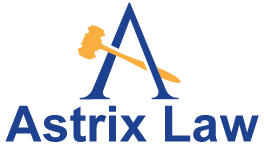SLIP AND FALL INJURIES
Slip and Fall Injuries in Arizona: Understanding Your Rights and Legal Options
Slip and fall accidents may seem minor at first, but they can cause serious injuries like sprains, broken bones, or even head trauma—especially for older adults. These accidents often happen because of hazardous conditions such as wet floors, uneven walkways, cluttered areas, or poor lighting.
Property owners are legally obligated to keep their premises reasonably safe. If they fail to fix dangerous conditions or warn visitors about them, they can be held responsible for your injuries.
If you’ve been hurt in a slip and fall accident, you may be entitled to compensation to cover medical bills, physical therapy, lost wages, and other damages. But these cases require proving that the property owner knew—or should have known—about the hazard and didn’t take appropriate action.
Having an experienced attorney by your side can make a big difference. They will investigate the circumstances of your fall, gather evidence, and fight to hold negligent parties accountable—helping you get the justice and financial recovery you deserve.
If you or a loved one has suffered a slip and fall injury, don’t wait. Contact us today for a free consultation and learn how we can help.
SCHEDULE A FREE
CONFIDENTIAL CASE EVALUATION
FREE CONSULTATION
Goldenblatt Law Firm SRA ref 669401. Calls may be recorded for quality and training purposes.
Copyright © Goldenblatt 2019
OUR LOCATION
This website contains Attorney Advertising and is designed for informational purposes only. Any information obtained should not be construed to be formal legal advice nor the formation of a lawyer/client relationship. Prior results do not guarantee a similar outcome.
Copyright © Astrix Law 2025 | FAQ’s | Privacy Policy
This website is for informational purposes only and does not constitute legal advice. Viewing this site or contacting us does not create an attorney-client relationship.
Copyright © Astrix Law 2026


